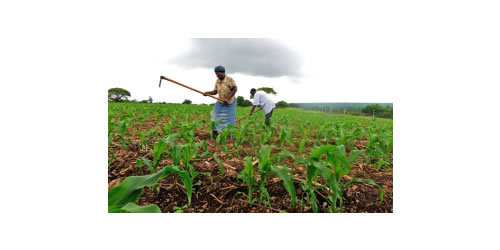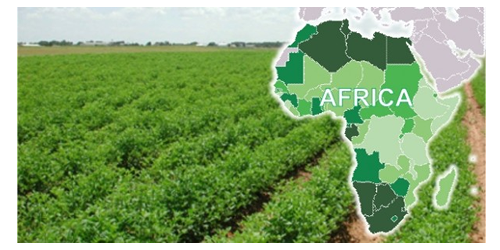East Africa: Weak Global Economy Dampens EAC Oil Hopes
“East Africa, in particular, has emerged as a “new frontier” for oil and gas in the past half-decade… newly discovered oil reserves in Uganda and Kenya have the potential of coming on-stream by the end of the decade,” notes the bank.
Currently the region’s exports are dominated by agricultural commodities, especially coffee and tea but that could change if oil production starts in Uganda and Kenya as well as gas in Tanzania. Uganda’s oil discovery is estimated at 2.5 billion barrels, according to the International Energy Agency; while Tullow, a major investor in Kenya’s oil, estimates the country’s reserves at above 600 million barrels.
Experts say that these deposits are enough to make the region ‘oil independent’ and exporter of petroleum products.
If that happens, the balance of trade will improve and oil and gas revenues will reduce fiscal deficits. Economists also say that good fiscal policies and prudent investment of the petro-dollars would greatly impact on the lives of the region’s poor through improved incomes and standards of living.
These benefits would not stop in Uganda and Kenya, but would also be felt in neigbouring countries such as Rwanda through regional integration projects.
Party spoilers:
However, the region’s oil prospects, as noted by the report can only be attained at the end of this decade or shortly after; 2020 and beyond.
This means that presently, the region must invest in infrastructure such as refinery, pipeline and roads to attain this future; it calls for huge financial investments that the countries don’t have hence the need for strategic investors.
Unfortunately, currently tumbling global prices are likely to make investors reluctant to invest in oil; low prices are disheartening for oil producers yet the future is not clear. It means oil production in the region may be delayed as investors watch the market. That is bad news for the region’s ongoing oil infrastructure projects such as Uganda’s oil refinery in which all EAC members will have a stake.
At the end of 2014, EA partners expected Uganda to have concluded the process of identifying a strategic investor in the multi-million dollar refinery.
Negotiations were in advanced stages with RT-Global Resources of Russia and SK Energy of South Korea emerging top contenders. Uganda was expected to have made a choice between the two firms by August last year, after the firms were told to submit final proposals detailing their investment plans.
On Friday, Emmanuel Hatega, Uganda’s coordinator of the Northern Corridor projects, said they were yet to choose between the Russian and South Korean investors, but said he expects the process to be concluded in February. If a decision is made next month, the successful investor would have a 60 per cent stake, Uganda 30 and other EAC partner states 2.5 per cent each.
Weak oil stocks:
Speculators think they know why negotiations with the two potential investors have delayed: Global oil prices are very low yet projections point to further decline, given the weak global economy.
It might therefore be the wrong time to go hunting for investors in the multi-million dollar project to process a product whose price has collapsed.
Investment decision makers are worried, as indicated by PriceWaterhouseCoopers’ 18th annual global CEO Survey released early this week.
According to the survey, the number of business leaders who believe that the global economy will improve in 2015 dropped from 44 per cent last year to 37 per cent.
In 2013, Uganda estimated the value of its oil at $150billion. But at that time, a barrel of oil was above $100; today, it’s half that.
The price of oil continued to collapse into January as rising supplies collided with weak demand while OPEC maintained its stand not to cut production; Brent crude futures last traded at $48.40/bbl, near a six-year low.
On Friday, Prince Alwaleed Bin Talal, chairman of Saudi Arabia’s Kingdom Holdings, made the future sound uglier when he said, shortly after the death of his uncle, King Abdullah, that “the world will never again see the price of oil at $100 per barrel.”
“The lack of balance between oil supply and demand means the road back to $60-$70 range will be not be that easy, not that quick,” the prince said, adding that markets may not even have found the bottom yet.
Lost decade:
Saudi Arabia maintains the world’s largest crude oil production capacity, estimated to be about 12 million barrels per day at the end of 2014.
If oil will never be expensive again, it’s just bad luck for EAC; low prices make it less lucrative to invest in extracting oil.
Russia, one of the leading oil economies is also one of the worst hit by the current low prices.
For East Africa, it also means that a Russian firm may not be that enthusiastic to become a strategic investor in the Uganda refinery. That would leave the South Koreans a safer bet. This could be a lost decade for East Africa’s oil prospects. It had been anticipated that production would start late 2017, but if there are no investors to prepare the infrastructure, it may as well be pushed beyond 2020.
Some say the challenge is to attract investors who can, regardless of the current situation, invest in the region’s oil. They add that there’s enough demand in the region to consume local oil at good prices.
However, at almost $40 dollars a barrel, it could be cheaper to import than to produce oil.
Source:




